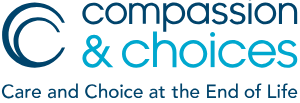Wondering about Advance Care Planning (ACP)? Let’s explore what you need to know with Sigrid Swerdlin, ACP expert and speaker.
What is Advance Care Planning?
Advance Care Planning is the process of preparing for future decisions about your medical care if you’re seriously ill and unable to communicate. This process requires you to think about what you want medically to happen to and for you if you are not able express this yourself. It also requires you to choose and empower a person you trust to speak up on your behalf. These thoughts and plans need to be communicated to the person who will speak on your behalf (referred to as the agent) and with the family/friends so that there is no question of who’s doing what in a time of need. This communication and ‘letting people know’ is key to the success of making sure your wishes are being executed in case of need. Often all of this is documented and is a part of the more comprehensive advance directives, which covers not only medical care, but also financials, estate plans, spiritual and environmental wishes, and body deposition planning.
Why is Advance Care Planning important?
If you have no advance care plan set up and you end up in a situation where you are unable to communicate your wishes, doctors and/or the state will assume that role and take decisions about your medical care on your behalf. They will take these decisions based on their beliefs, ideas, and values and this might not reflect your wishes. But because you are unable to speak for yourself and nobody has been assigned AND informed about your wishes, someone else will do it for you.
Do I need to have a professional help me set up my documents?
This really depends – on many factors. If you are someone who’s comfortable to do a lot of research by yourself and process complex topics by yourself, document the decisions you take from that thought process and being able to communicate all this to your family and agent you will not need a professional to help you. If on the other hand your time and resource access is limited, you might want to consider getting support. This support comes in many forms, and you can decide what level is right for you. Attending workshops that provide you with information on advance directives and advance care planning. This should give you an idea of the various components involved in setting this up. You might be able to go ahead by yourself and/or with your family from there. If you would like more assistance, the 3 professionals that can assist you with the completion of the advance directives are:
- Financial advisor / Estate planners – for all matters related to finances and estate
- Funeral directors – for all matters related to body deposition
- Advance Care Planners / End of Life Doulas – for everything else
Financial advisors / Estate planners as well as Funeral directors might be able to assist with some overlapping topics, but it’s rare that they offer all services for a holistic, all-encompassing advance directive.
Likewise End of Life Doulas / Advance Care Planners are an equally fantastic resource to assist you and your loved ones in the considerations, documentation and communication of your medical, spiritual and environmental wishes, but they typically refer to financial advisors for finance and estate topics. End of Life Doulas are however aware of body deposition options and can assist you with knowing your options and decision making.
Are there critical decisions I need to make before I set up my advance care plan?
There are 3 critical questions that are at the start of all advance care planning
- Do I care what decisions are made for me when I cannot speak for myself?
- Do I care what happens to my body, my estate and my legacy once I’m dead?
If the answer to both questions is no, then no actions are required. If however the answer is yes to one or both questions you should get your Advance Directive and your Advance Care Plan set up.
The most critical decision for Advance Care Plan is choosing your agent and having the conversation with your agent and your loved ones.




